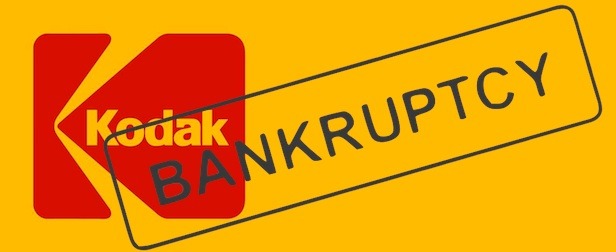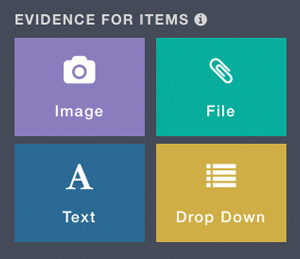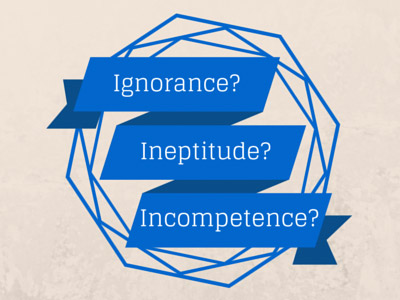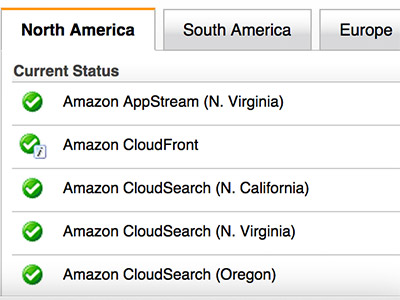When most people think of waste in a business process they think about excess materials.
People who have had contact with lean manufacturing talk about waste in the context of Muda, but often forget about the other two key forms of wastes laid out in the Toyota Manufacturing System, Mura and Muri.
While the 7 (8) Muda wastes are the results that we see on the surface, it is quite often problems with Mura and Muri that are causing them. Muda is just what is readily visible as the low hanging fruit.
Read MoreHow do we improve our end to end processes?
Delivering all products and services takes 3 things - time, resources and energy.
How do we identify the steps in a process that add value and those that don't?
"Why waste time learning when ignorance is instantaneous?"
Bill Watterson
Taiichi Ohno was a Japanese industrial engineer and businessman who worked for the Toyota motor company from 1943. He is responsible for what is known as the Toyota Production System within which he devised many improvement frameworks including the seven wastes (or muda in Japanese).
Read MoreA task is a statement of vision and intention.
The more clearly we write our tasks, the more clearly we think.
Clarity in writing tasks is a useful practice.
Kourosh Dini
Why it's important
Could you pick up your todo list and hand it to a coworker and they’d know how to action what is next? While you may think you are writing your tasks just for yourself, the reality is it is the future you that you are writing for.
Read MoreWe all want more business. If your business isn't growing, it is shrinking. Is there a right way? Or a way that is more effective than the others? The answer is yes. But it's never the same answer. Building a cohesive strategy for business growth requires putting focus into the engine the best works for your business.
Getting your head wrapped around these engines allows you to clearly create and promote your strategy.
Fundamentally there are 4 ways to grow your business:
- Improve your offering incrementally to increase revenue and to decrease costs.
- Scale your operations to reach new customers or do more for existing ones.
- Acquire other businesses to build scale and/or capabilities.
- Innovate to create and capture significant new value.
How do you conduct a great meeting?
The best meeting I have ever been in was the one I got kicked out of. Keeping the right people in the room for the right reasons is the biggest contributing factor to successful meetings. Where people are sitting at any given point of time drives the level of value they can deliver to a business. If you are stuck inside a room you don't need to be in, then you can't deliver any value.
Humans love to gather. It is community. We also like to tell people stories - even if it's not always the best way to get across fact based information. There is something about sharing information in person that helps us feel better about the process.
Read MoreWhy a new look?
We are always listening to you. Many of you love the visual style of Clever Checklist but have commented on how some of the more powerful features of the templating system were not at first very intuitive.
We wanted to make sure that everyone could easily access and understand the extra special sauce that makes Clever Checklist so powerful at solving accountability problems and eliminating mistakes.
There was also a large visual disconnect between the templates you maintained and the copies of checklists you started from them. This made moving from a checklist into the editor disorientating.
Read MoreLeading takes leaps
We live in an amazing world today. So many things we read about as kids in science fiction books are now a part of our everyday lives (except flying cars and hoverboards). But with all this innovation we have had, we still yearn for more.
Companies that want to lead and cash in on our never ending need for new stuff
must innovate or die.
I have a great respect for incremental improvement, and I've done that sort of thing in my life, but I've always been attracted to the more revolutionary changes. I don't know why. Because they're harder. They're much more stressful emotionally. And you usually go through a period where everybody tells you that you've completely failed.
-Steve Jobs
For a business to survive it needs Continuous Improvement.
For a business to lead it needs Discontinuous Improvement.
You never become a leader by imitating and improving slightly.
Discontinuous Improvement is Innovation; an evolutionary step. A creative act that breaks with the incremental chain before it. It is not enough to just innovate. The risk isn't in the innovation itself, it is in the adoption and commercialization of the outcomes. If you don't adopt change someone else hungrier will.
If you don't cannibalize your own market someone else will.
"But we are onto a winner and dominate a market that no competitor can touch us in!"
Kodak invented the digital camera in 1975. It filed for bankruptcy in 2012.
They had the innovation in their hands for 37 years.

Delete the Sheet
Customers are always awesome at finding ways to use a product for things you don’t initially envisage. It’s nice when we discover that a problem that a customer is looking to solve with our platform is one we have too!
Recently a customer moved their large manual test case suite into our platform. Before they’d used a combination of Google Sheets and Forms to try and wrangle external testers to perform weekly tasks against the latest builds.
They were having some real problems making this scale. Quite often the labor in managing the spreadsheets and coordinating with the external parties was taking longer than the test schedule itself.
After a successful migration into the system they reduced their weekly setup burden to minutes. Clever Share allowed them to get the individual tests out to the third parties with little friction.
Read MoreWhat is the point of an operations manual that gathers dust in a cupboard? Or a run sheet that can't be accessed where the job is actually being done? Putting the "how to" and the job tracking together in the same place is what we are all about. Getting the job done right with a bit of fun and some accountability.
Your documentation doesn't need to be a wall of text. Bring your operational documentation alive!
With todays release you now have many media options available to include in your Help. You now also have the choice of how "in your face" you want that information to be. You can control the level of detail you want to expose and how and where you do that.
Want to provide a YouTube video to show how its done? No problem.
Want to have a training Slideshare available for new recruits? Easy.
Want people to always see the instructions? Check.
Want people to only refer to details when needed? Done.
Your time and attention are finite. The demands on your time and attention are infinite. Time management is the discipline between the demands.
Making commitments that you forget and slip through the cracks? Perhaps you need to work on Capturing. Keep over booking your time? Maybe your Scheduling needs work. TODO lists 10 miles long and unmanageable? Your Review and Empty routines probably needs some help.
Everybody has a system for handling their time. The absence of a system is a system. A choice to not do anything is still a choice. Some peoples systems work better than others. Other peoples systems don't necessarily work for you. There will never be a time management system that works for everybody. Only a set of systems, tools and processes that work for you.
What you are doing right now is ok! But could it be better? Always!
Read More“A job is a system that turns time into money. A business is a system that turns systems into money.”
@patio11
Your business is a set of things that need to be done well over and over again that provide value to a customer. There is no such thing as no process. It is just bad ones. If things are getting done - to whatever standard of quality then there is a process. Task lists, Checklists, Job tracking software. You already have a way of doing your job. It just may not be well documented or consistently delivered.
Read MoreIncrease Quality to increase Productivity
If you see people in your business as the accelerator for productivity then when you want to "step on the gas" you are just stepping on people.
Innovation comes from people who take joy in their work.
Lets look at how understanding and making improvements to quality will give you the productivity increases you are looking for.
Read MoreSometimes the most obvious flaws are the ones we are most prone to overlook or dismiss as "just one of those things". We want to be better and take pride in our work. So lets look at a framework for rationalising the reduction of errors by yourself and others. When we can clearly identify and classify a failing, we are immediately positioned to tackle it.
Read MoreTLDR;
- Get a speed reader
- Watch videos on Youtube @2X speed
- Use Text to Speech to read articles to you
I love to learn - at my own pace. If I could I would read and watch the 1000s of articles that churn through my 160+ site RSS feed. There is a 1 to 2 hour window every day where I review everything interest worthy to me.
Read MoreThings happen - react well both in the moment and afterwards.
Give me a RED CROSS!

Amazon AWS experienced a service disruption to CloudFront.
Things break, it happens. Given the size and prevalence of AWS the whole internet knows it.
Nothing can go wrong quietly in a corner for them.
Read MoreHelping staff to see them
20 Hours to learn, 10,000 Hours to master. Is competence somewhere in the middle? This level of understanding comes from seeing the pattern.
Josh Kaufman purports that it takes just 20 hours to establish a base level in a new skill. Malcolm Gladwell popularised the notion that it takes 10,000 hours to become a master at it. A premise debated by David Epstein. On either side of the nature vs nurture debate I don’t think there is any denying that practicing helps more than it hinders.
Read MoreWhen you can’t “measure twice and cut once”, don’t measure at all, cut in small increments and affix with screws.
Best practices and standards exist because they are best practices and standards. They provide the results written on the tin, not necessarily the results you want. If you don’t take stock of the world around your tasks then doing the right things can lead you to the wrong outcomes.
Read MoreIn any process or system there is a minimum amount of complexity that can bare no further compression. This level of complexity acts like a waterbed that bulges up in one area when attempts are made to push down on another.
Read MoreTaking a hacksaw to a steel pipe led to an unexpected benefit. Fixing up an old property triggered the realisation that making things better is often obscured by ignorance. The lack of knowledge, time, money or energy makes the phrase “If it aint broke don’t fix it” feel really natural and right. But that is not always the best advice.
Read MoreREALITY: “It’s not really a priority”
Maybe you didn’t have time the first day you tried to get something done – but every day? Come on.
You had enough time today to do everything that you prioritised. You prioritise continuously, just not always the way you intend. The problem isn’t time. It is that there are conscious and unconscious influencers on what you really want to do.
Read MoreEvery business has one – “the guy” – the one who knows how to do it. What happens if he is hit by a bus? Or when he decides this job isn’t for him any more? Sure, businesses may not fall over without this person – but there is avoidable pain.
Read MoreIt pays to be wary of getting caught in the trap of perpetual planning and no actual doing.
A brutal truth is that the only alternative to a successful outcome is an unsuccessful one. No matter how much you thought about it or what you intended it is only what you ended up doing that really counts.
Read MoreYou can do things really efficiently, but if it doesn’t create an effective result what was the point ? Results are what matter most.
RESULTS > EFFECTIVENESS > EFFICIENCY
Are you doing what matters? Got the right results? Awesome! Now what can you do to achieve them more effectively? All over it. What is left to tweak? Now it is time to think about getting more efficient.
Read MoreSeeking accountability can very easily be mistaken for micromanagement (and usually by people who need it most). It is the leaderships role to ensure that a company’s most valuable and most expensive resources are focused and aligned to the goals of the business. It is impossible for people to know they are working on the right thing if they never ask. They will never be working on the right things if you never ask them.
Read More
























